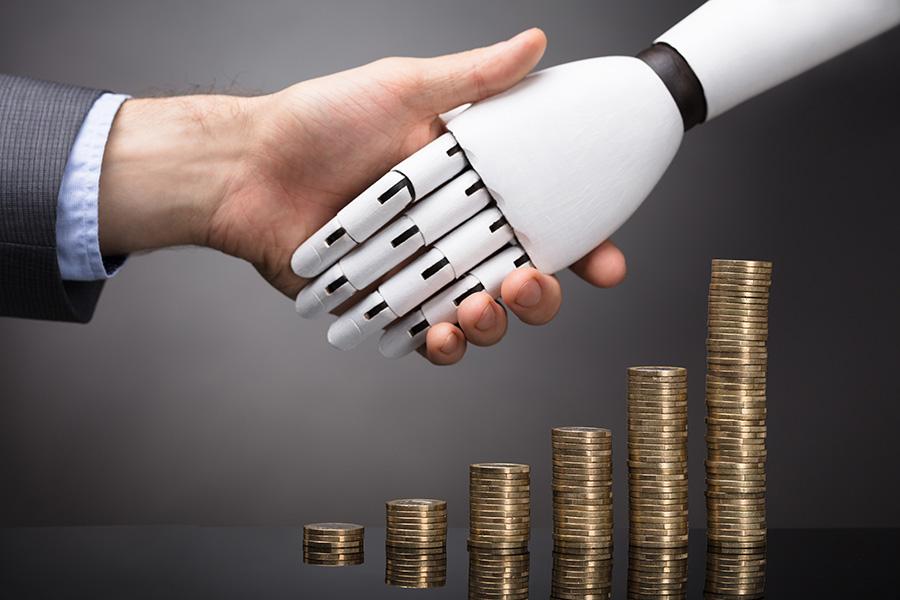Source – forbesindia.com
For starters, let’s take stock of the current scenario. Automated trading algorithms powered by Artificial Intelligence (AI) have powered their way into the financial world faster than the market pundits could have ever predicted. AI-driven investment platforms like Wealthfront and Betterment have drawn investors in droves assuring them of safe, reliable returns. Naturally, this has led people to believe that AI is the future of trading.
Over the years, the world of trading has evolved to leverage technology to create a differentiated advantage. In the recent past, AI and alternate data analytics have emerged as powerful ammunition in the arsenal of these firms fighting to generate alpha and reduce costs. These tools have expanded across the domains of trade strategy, trade execution, settlement, compliance, operations and customer engagement.
Trading Strategy
Recently, global investment banking company UBS built a Machine Learning (ML) – based algorithm to trade volatilities. It scans vast amounts of trading data to create a strategy based on learning from market patterns. CLSA, on the other hand, uses ML and Natural Language Processing (NLP) to identify market signals from news and research documents. It leverages Neural Networks (NN) to identify volatility, predict intraday price movements, among others, and combines information from both these to recommend trading actions. Sapient recently built a comprehensive research tool with a Natural Language interface. It can dig through heaps of research data to help answer investment and research questions for traders.
Not to be left behind, hedge funds, too, are jumping into the AI bandwagon. Some of the newer players now use Evolutionary Computing as a foundation for their trading. They create a number of random digital traders and test their performance against historical stock data. Just like the theory of natural selection (survival of the fittest), these algorithms identify the winners and use their key attributes or “genes” to create the next generation of superior traders. This process is repeated across various market conditions to eventually create a set of smart traders.
Some of these hedge funds use Deep Learning, a subset of AI to manage their portfolio. They use it to model and predict fundamentals of companies, marry that with social media content from Twitter, Facebook etc, and other news stories to connect relevant data points and make market predictions to identify trading recommendations.
Several firms have also started using alternate data to augment trading strategy. In one case, Sapient used newsfeeds to help generate price sentiment analysis. In another, we used inputs from satellite imagery to identify and track commodity cargo movements. Besides tapping into social media feeds to identify market sentiments, some firms even use the imagery of parking lots to identify employment increase in offices. Still others track changes in footfall at retail stores to identify growth or a slowdown in companies or industries. The increasing use of intelligent search platforms and tools that can generate market insights and conduct behavioral analysis are helping organisations identify trading opportunities at a phenomenal speed.
Trade Execution
Stealth of execution is paramount while dealing with large orders to ensure that they are executed without moving the market. Last year, JPMorgan began using AI to execute trades in equities businesses. Typically, these large orders are executed using algorithms that split and execute orders. Now, AI is being used to decide which algorithm to use when. Interestingly, AI is also helping in the behavioral analysis of traders. Looking at the history of traders, these algorithms can identify trader traits. For instance, does the trader hesitate to take a call when the market is turning? Is he overly aggressive in certain situations? This plays a key role in identifying traits and take corrective actions.
Trade Operations
Robots powered by ML and Intelligent Process Automation help increase speed and reduce costs of a number of operations. For instance, Innova, a modern investment compliance platform, helps asset managers ensure that they have controls in place to monitor their funds’ compliance with regulatory requirements. UBS is using bots that detect client emails and use that to manage fund allocations. For one of its clients, Sapient built bots to automate functions like account payable processes, broker reconciliation and inventory write-down operations, to help free up business users from high-effort activities. Considering that these bots can run 24×7 and can scale up and down as needed, it has helped make tedious operations like account closing quick and smooth.
When all’s said and done
There’s no doubting the fact that AI is becoming all-pervasive. Organisations must keep evolving and adopt AI to avoid the risk of being left behind in the race. True, AI and its related technologies are still at a nascent stage. But they hold a huge potential for the trading industry. Most of these solutions are currently proofs of concept and are gradually moving towards mainstream. The industry will continue to evolve these models and improve them to operate successfully in various business cycles. The key aspect to keep in mind is that AI is driven by data and data quality can significantly impact outcomes. Also, if the data has biases, naturally the predictions from AI will also carry over the same biases, and in some cases even exaggerate those. This calls for data scientists with deep mathematical and business domain knowledge to model these decision-making platforms.
AI will surely have a significant role to play in the future of trading. Probably, advanced versions of trading platforms would create and augment themselves. Who knows, some day they might even give insights into the complex variables that have eluded human economists since ages. So the question is not about who’s going to win – ‘man’ or ‘machine’? I think the answer is neither, the future will belong to the ‘man with the machine’.
